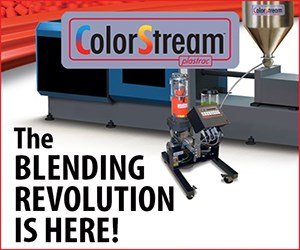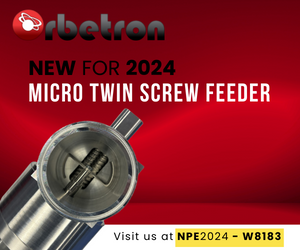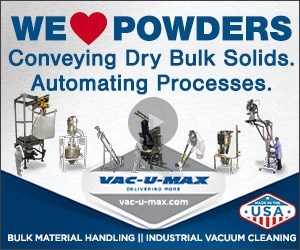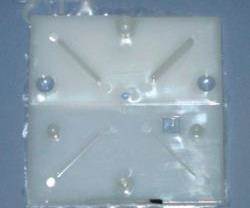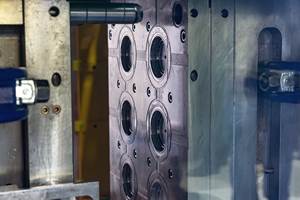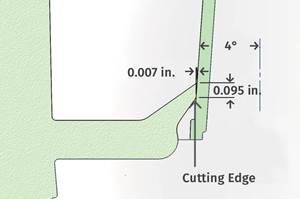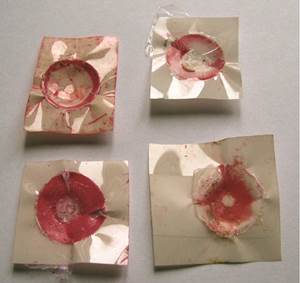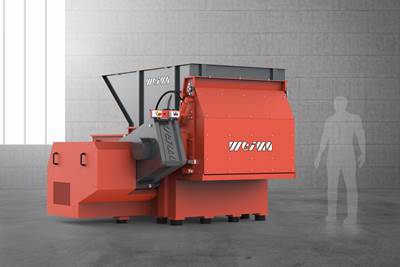Custom Molder Expands in ‘Leaps of Faith’
Who would embark on an $8.8 million plant expansion without new orders in hand? Someone who knows his customers very well.
When Carl Morris bought a second molding plant in 2007, he called it “a leap of faith.” The economy was heading into a punishing recession, but the move put his injection molding presses closer to one of his largest customers, which Morris knew was planning a large program in electrical “smart” meters, a product his firm was already molding. Morris anticipated a multi-mold project that had been delayed, but was due to start a few months after purchasing the plant.
In May of 2015, Morris took another leap, more than doubling the size of the newer plant and adding seven new machines that boosted his tonnage capacity to a higher level. Again, the move involved some “faith.” He didn’t have parts orders to fill up the new capacity and upsized machines, but he knew his customers and, he says, “I knew what was coming.”
GROWING BY LEAPS & BOUNDS
That kind of entrepreneurial spirit has driven Morris’s career for the last 30 years. After two years in plastics at Singer Corp. and 18 years at Engineered Custom Plastics in Easely, S.C., he decided to strike out on his own. “Having worked at other molding facilities, I thought I could design and build a better mousetrap. The idea was to provide the best quality molded products for an industry that was on the way up.”
In 1987 he founded Injection Technology Corp. (Itech) with one machine. “We molded our first part on April 4. By May 1, we went to round-the-clock production. On June 18 we started up a second machine.”
Two years later, the fledgling firm moved to its present headquarters in Arden, N.C. “The building was little more than a cold, dark warehouse, and we thought we would never fill up this wide-open space. Was I wrong!” After several additions, it encompasses 29,500 ft2 and houses 25 machines from 60 to 500 tons. Employees now number 125, including temporary workers.
In 2007, with that location filled to capacity and no room to be enlarged, the opportunity arose to purchase an almost-new, 32,000 ft2 building with 12 molding presses of up to 950 tons in the “Golden Triangle” of South Carolina, closer to one of his major customers. The previous owner of that plant—now called Itech South—had gone bankrupt, but Morris’s “leap of faith” panned out once again.
A year ago, Morris began a 33,500 ft2 expansion of Itech South in Westminster, S.C., and just recently installed the last of seven new Negri Bossi presses from 275 to 1650 tons. That raises the total there to 21 machines, starting at 90 tons. Staff size is 85, including temps. The $8.8 million expansion includes robots for all the new presses, built by Sytrama, an Italian sister company of Negri Bossi, as well as a new cooling tower and system upgrade from Process Cooling, a central material-handling system from Wittmann Battenfeld, five additional loading docks, and a 30-ton bridge crane. The new hall has room for one or two more machines, but the lot spans 32 acres, so there’s plenty of room for additional growth. It may well be needed, since Morris expects to sell out his new capacity by the middle of next year.
Today, Itech is a $24 million business, split about evenly between the Arden and Westminster locations. Its main markets are child car seats, riding lawnmowers and other lawn-care products, electric meters, electronic enclosures, and sports equipment like “fish finders.”
Itech can mold parts from 0.5 g to 20.3 lb. “We don’t want to mold spoons and forks,” says Morris. “We like jobs we can sink our teeth into—engineering resins, snap fits, multi-material overmolding, in-mold labeling, and tight tolerances.” As an example, he cites the electric meter cases, which must hold ±1 mil over 3-4 in.
The materials Itech molds are mainly PP, nylon (filled and unfilled), PC, PC/ABS, TPU, PS, ABS, and even Ultem PEI. Itech molds as few as 500 parts a year for some jobs, while another job has been running continuously for six years. “We like jobs that run 200,000 to 300,000 part a year,” says Morris. One of the staples is a child car seat that runs 300,000 a year, but Itech molds eight or nine parts for the assembly on six machines of 90 to 950 tons.
Itech serves mostly customers in the Southeast, and personal contact is an important value, Morris says. “We have to know our customers, be responsive to their needs, and be a true partner to our customers and vendors.” These factors, plus “our knowledge of materials and tooling and staying up to date in machinery, automation, and process monitoring, help us give customers what they want. We’re not the cheapest in the world, but we deliver a quality product on time.”
Itech is not immune to overseas competition from lower-cost producers. “One of our largest customers took most of its business to China. But it will come back. You get what you pay for. People say, ‘I can save 50% in China.’ But they’re not counting shipping costs and the cost of sending people over there for weeks at a time. Here, the customer can drive over and see me and we can correct problems just like that.”
Itech does use a lot of tooling built in China. The key to making that work, says Morris, is working through local toolmakers that have partnered closely with Chinese moldmakers to meet U.S. standards.
BETTING ON LARGER PRESSES
Itech purchased seven Negri Bossi presses for the new expansion at Itech South. These include an eCanbio 250 toggle press (275 tons), two eCanbio 500 toggles (550 tons), an eVector 1000 toggle (1100 tons), two Bi-Power VH 1300 two-platen models (1430 tons), and a Bi-Power VH 1500 two-platen machine (1650 tons). All are hybrids with electric screw drive and hydraulics for the other functions.
While Itech has four Toshiba all-electric machines from 85 to 220 tons in Arden, Morris considers hybrids to be cost-effective for his needs. “Electric servomotors are expensive to repair,” he notes. “And we need hydraulics anyway for core pulls, slides, etc.” He doesn’t see much potential for additional energy-cost savings from all-servo machines. “Electricity cost around here is very reasonable.”
Itech’s first experience with Negri Bossi was with the purchase of two machines of 250 and 330 tons for the Arden plant in 2012 and two more the following year of 865 and 1200 tons for Itech South. Besides the essential machine quality, service was the major factor in teaming up with a new vendor. Itech did its homework and asked other local molders about their experience with Negri Bossi (U.S. office in New Castle, Del.). Morris and his wife also visited the company’s Italian headquarters, and he has high regard for the local rep agency, QED Inc., in Charlotte, N.C. Morris plans to stick with Negri Bossi for future machine purchases.
Morris says his company’s gradual move to larger presses has been customer driven. “It means they can add a second cavity, or even four to eight cavities, for medium-size parts. We’re also getting into some larger parts.” One massive TPU part now in development by a customer weighs 9 lb and later versions could weigh 20 lb. Itech has molded TPU up to 1.5 in. thick on a 5-min cycle.
Nonetheless, the new 1650-tonner was bought “on faith,” Morris admits. “We’ve had a couple of bites from customers with jobs that could run on it. There’s not many machines of that size in this region to compete with it.”
KNOW YOUR COSTS
Morris is proud that his first experience in building a plant from scratch with big machines exceeded its original $3.3 million construction budget by only $119,000. “There were some eye-openers,” he concedes. “We thought 2000 amps of power would be adequate, but these machines required us to go to 4000 amps.”
The new area of the plant saves energy through more efficient lighting. “The old mercury bulbs put out 22.6 ft-candles, while the new fluorescent T-5 bulbs emit 65.7 ft-candles and still use only half the electricity!” Morris enthuses.
The expanded area has air-conditioning equipment on the floor rather than the roof, saving construction costs to support the weight. “Without air conditioning you’ll work your dryers to death in this climate,” Morris observes. “It improves the workplace environment and also prevents mold sweating.”
Itech added an enclosed granulator room to minimize noise and dust in the plant. The firm reuses most of its scrap. All the new presses have Wittmann proportioning loaders for virgin and regrind.
Morris is looking to add more automation and also to try to accommodate it in different ways. For example, he replaced a metal screen enclosure around a conveyor where a robot deposits parts, using vision sensors instead to stop the robot if a human enters the safety zone. The benefit is improved access to the equipment without hardware barriers.
A key tenet of Morris’s philosophy is, “If you don’t know your costs, you’re going to go under. A lot molders suffer or fail because they don’t know their costs.” Itech is different, in part because of its extensive use of realtime production monitoring with a system from IQMS, Paso Robles, Calif., over the past decade. “You’re really missing the boat if you don’t have this kind of capability. It cuts down on personnel—invoicing is so fast and easy; scheduling is a breeze. I can sit anywhere in the world and look at my laptop and see in real time what’s running in either plant and how it’s running.”
Another strategic tool is use of process monitoring systems from RJG Inc., Traverse City, Mich., to ensure product quality. “The system prints out a label that says the part was molded within process limits, and we stick it on the part,” Morris notes. “That provides quality traceability for us and for the customer.”
Half a dozen people in the company have taken a course in Scientific Molding, partly through in-plant instruction by resin distributor Nexeo Solutions, and Morris plans to have more people trained in the technique. “Anybody can mold 10 good parts,” says Morris. “But what counts is how my third-shift guy runs that process in the middle of the night. Murphy [as in Murphy’s Law] is alive and well and works all three shifts.”
Related Content
How to Stop Flash
Flashing of a part can occur for several reasons—from variations in the process or material to tooling trouble.
Read MoreA Simpler Way to Calculate Shot Size vs. Barrel Capacity
Let’s take another look at this seemingly dull but oh-so-crucial topic.
Read MoreTunnel Gates for Mold Designers, Part 1
Of all the gate types, tunnel gates are the most misunderstood. Here’s what you need to know to choose the best design for your application.
Read MoreAre Your Sprue or Parts Sticking? Here Are Some Solutions
When a sprue or part sticks, the result of trying to unstick it is often more scratches or undercuts, making the problem worse and the fix more costly. Here’s how to set up a proper procedure for this sticky wicket.
Read MoreRead Next
Making the Circular Economy a Reality
Driven by brand owner demands and new worldwide legislation, the entire supply chain is working toward the shift to circularity, with some evidence the circular economy has already begun.
Read MoreRecycling Partners Collaborate to Eliminate Production Scrap Waste at NPE2024
A collaboration between show organizer PLASTICS, recycler CPR and size reduction experts WEIMA and Conair will seek to recover and recycle 100% of the parts produced at the show.
Read MoreFor PLASTICS' CEO Seaholm, NPE to Shine Light on Sustainability Successes
With advocacy, communication and sustainability as three main pillars, Seaholm leads a trade association to NPE that ‘is more active today than we have ever been.’
Read More

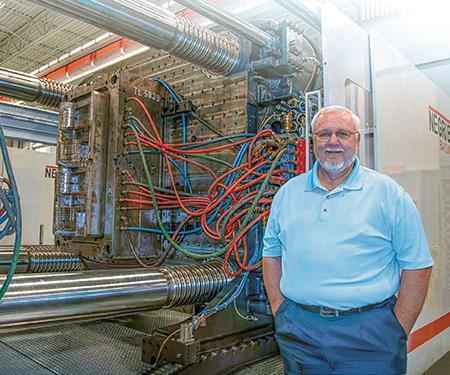
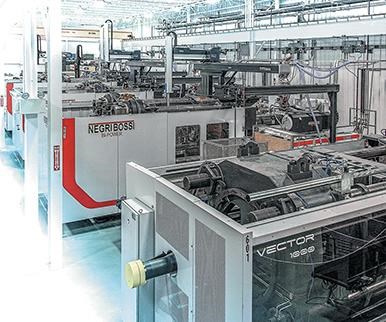
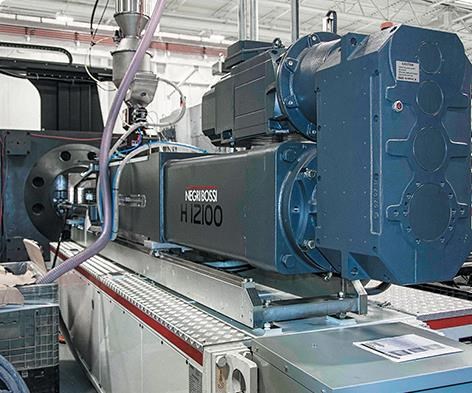
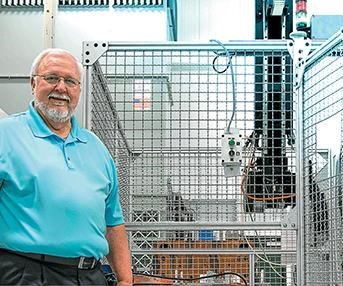
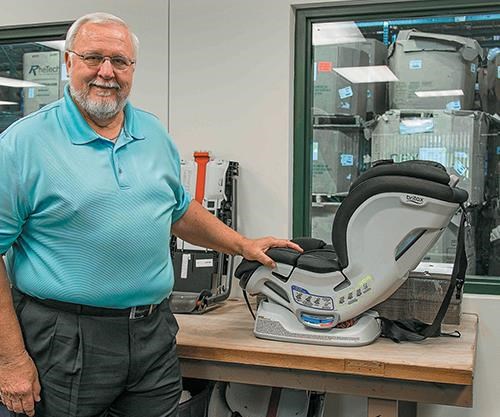
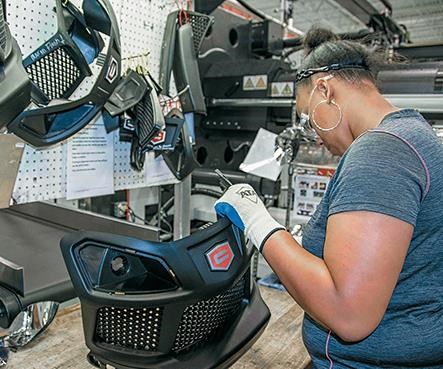

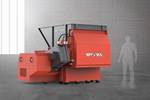







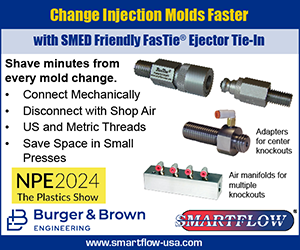
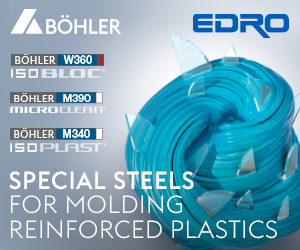
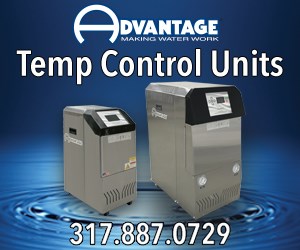


 (2).jpg;maxWidth=300;quality=90)


